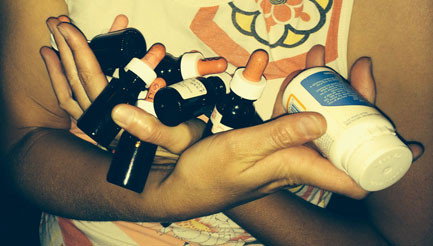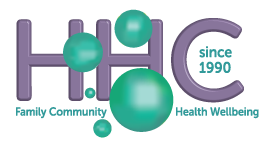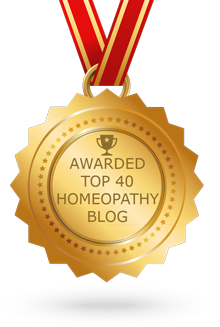Ask any homeopath if they have self-medicated at any time in their lives, and it’s highly likely they will look a little guilty and admit that, yes they have taken a homeopathic remedy or given their loved ones remedies without consulting their own homeopath. Homeopaths are a naturally curious bunch and most of us at some stage or another have explored various remedies for themselves.
Self-medicating in homeopathy: is there a place for it?
There is a saying that a doctor should never write his own prescriptions, so is homeopathy any different? If so, how? Is it such a bad thing to self-prescribe? There are those who would say definitely yes. And there are those who would say it’s totally fine. I for one will admit to self-prescribing more than a few times, as well as for my kids and husband, with wildly varying results. So let’s look at a few arguments for and against.
Homeopathy and intention
I’m putting this first, because intention lies at the very foundation of everything we do and it can cause results to go either way. If you don’t like someone and try to change them by giving them homeopathic remedies, it may end up a disaster. Let’s say, though, that you feel sorry for your husband because he’s hurt his back playing football and you have read that Arnica may help. It’s likely to have a much more positive effect if it’s coming from a place of empathy rather than dislike!
So if you are thinking of self-prescribing it’s absolutely vital to ensure you have your intentions in the right place before you reach for that remedy bottle. On saying that, I do think it’s perfectly reasonable to give your child a dose of rescue remedy just because they wake up in the middle of the night, you don’t know what’s wrong, and you really just want them to go back to sleep so you can too.
It’s three o’clock in the morning and my child has a fever
There’s little chance of anybody else being able to treat your child aside from the local hospital at this time of the morning, and if it’s serious enough then it’s best to get straight to the hospital. But what if you suspect your child has an earache, or if the fever is mild and caused by teething?
What if the child has a sniffle and can’t breathe through their nose, and is getting more and more distraught because they can’t suck their thumb? I’ve had things like that happen many a time in the middle of the night, and the first thing I reach for is a homeopathic remedy.
If it continues into the next day, I revise my remedy selection/s and ensure that the remedy/ies I am giving are appropriate for the symptoms. With a little training, it’s possible for parents to give basic first aid remedies in the home for mild fevers, teething and those everyday little illnesses that make children’s lives miserable (and ours as their parents when we get no sleep!) Having some first aid remedies on hand can make a huge difference if given immediately. An example of this is when my four year old son got stung by a bee the other day. He came in screaming blue murder. I got my twelve year old to give him Apis while I pulled the sting out, applied the ice, and gave him a cuddle. Literally within one minute he decided he was better and jumped off my lap to get back to playing in the backyard. Even I was surprised at how quickly he recovered, especially since he is usually the sensitive one who seems to need more comforting for these things (read – drama queen!!!!). He didn’t even ask for a band aid!
BUT
If you or your child has a chronic underlying condition it’s a good idea to ensure you get professional homeopathic advice before self-prescribing at three o’clock in the morning, just in case it may not be appropriate to reach for the remedies. For serious conditions it’s important to seek medical advice and treatment if appropriate. To be obvious, if my son was anaphylactic to bee stings I would not have been giving him Apis and a cuddle. I would have been on my way to hospital after jabbing him with an Epipen. Well, maybe in the ambulance after jabbing him with an Epipen I would be rubbing liquid Apis on his pulse points, but that’s an idea for a different blog……
I’m only using low potencies, like the ones in the first aid kit
There’s a reason why the first aid remedies are usually supplied in a low potency. This is so that if you make a mistake, it won’t have much effect and you can try something else. It’s common knowledge that homeopathy is safe to use for yourself, your pets and your children. A recent inquiry into homeopathy by the Swiss government found that homeopathy is one of the safest forms of medicine, and its effectiveness was found to be on par with, and often even more effective than conventional treatments in certain conditions.
At our clinic, for a first aid remedy used at home by parents, we usually give with the following advice: give a 30C potency every hour to two hours, depending on intensity of symptoms. If you have reached five doses of a remedy and there is no improvement, it’s likely that the remedy choice isn’t quite right and it may be better to go back to the drawing board. Most of the time, a low potency of the right remedy, or a mix of different remedies, can be extremely effective for minor complaints that arise in the home.
Did you know that most homeopathic remedies can be antidoted by camphor, which is commonly found in most chest rubs in the supermarket, as well as moth balls? A low potency can normally be antidoted quickly and effectively by the following method. If you feel that you have given the wrong remedy, or are confused by the symptoms in front of you, you may want to try putting a small dab of camphor-containing chest rub on your finger and holding it in front of the nose of the person you are treating. If they inhale it the camphor will most likely antidote the remedy.
BUT
Even the most gentle potencies can sometimes cause aggravations in very sensitive people. For more information on aggravations please refer to the following site: http://homeopathyplus.com.au/what-is-a-homeopathic-aggravation/
It is also important to consider that even the most gentle of potencies may still have an effect on the emotions and thoughts of a person. I gave a highly sensitive friend a mixture of tissue salts for her joint pain recently. Tissue salts are extremely low potencies of homeopathic salts which are well known for working on mainly physical issues such as joint pain, nerve support, fluid rebalancing and detoxifying. It just so happened that this tissue salt mix I gave my friend brought out long suppressed emotions as well as improving her joint pain, both of which were connected to each other. With a reduction in dosage she was able to minimise the joint pain without stirring things up inside, enabling her to process the emotional aspect of her joint problem at a more gradual pace which suited her (and she sought counselling to further support her working through the issues). This type of response is a rare occurrence and most people have good experiences with tissue salts without any significant emotional changes. The Earmix we sell at the clinic is an example of a tissue salt mix, which has been used both at home and prescribed by us homeopaths with great success for many years.
There have also been stories around the traps that some extremely sensitive people don’t always respond quickly to antidoting. In this instance it is important to see your homeopath for more advice, as there are particular remedies that can antidote each other.
Nobody knows you, like you know yourself.
You’re the only one who will ever know you like you do. Right? It’s true in a way. Only you know exactly how you react to the world. There are always parts of ourselves lying in the deepest, darkest places inside us that defy our attempts to put into words. There are also parts of ourselves that we would prefer not to have to put into words.
Only you can judge whether or not it’s OK to do that, and how much you disclose. There are certain times you may not wish to disclose for legal or safety reasons, such as if you are in witness protection, or if you have a dark past you would prefer not to have anybody know about. Like all health care providers, homeopaths are required to report to authorities if they are told about situations where a crime has been committed, or if somebody is in danger of being hurt or killed.
It may be of benefit to do a little soul searching and face all those things about yourself that you don’t want to see, or don’t like, and then it’s likely to make all aspects of your life more fulfilling. It may also lead to you recognising the most appropriate constitutional remedy for you, if you are clear within yourself.

I have often self-prescribed when I know I won’t get the chance to go to the homeopath for a little while, like if something upsetting happens at the beginning of the weekend, or if the kids are sick and I take a remedy to support myself through my lack of sleep. Very occasionally I will read up on a new remedy and think to myself that it will fix all my problems, with very mixed results.
BUT
In order to get to the stage of seeing yourself clearly, it’s highly likely you’re going to need some help and support along the way. It’s much more difficult and completely unnecessary to plod along on your own without the support a professional homeopath, or counsellor can give you. Did you know that homeopaths are trained in counselling and are very good listeners?
Telling your homeopath about your dark side can be a little scary and requires trust, but if the trust is there it can be incredibly liberating to confide in someone who is more interested in finding the appropriate homeopathic remedy that’s just right for you, than in judging or changing you in any way.
A homeopath will also ask you questions about yourself you would never have thought to wonder about. The beauty of homeopathy as a modality is that it seeks to explore parts of yourself that don’t often get a mention in conventional treatments, as a homeopath sees a person in a much more holistic and multidimensional way. In other words, we know that people have layers…… just like onions do!
I have often read about a remedy, thinking it applies perfectly to me (or my child), then read up on it again at a later time only to realise it only applied to a mood I was in at the time and would be completely inappropriate for the whole of me. It’s kind of similar to the way that somebody can read their daily horoscope in the newspaper, remark on how fitting it was for them, only to realise later they were reading the horoscope for the wrong star sign!
It’s also possible to use homeopathy in a suppressive way. If you are stuck in a situation that isn’t right for you, and you use remedies to suppress feelings of frustration, sadness or anger, you may end up putting up with that situation for a whole lot longer than if you had allowed yourself to feel emotions that may be completely appropriate and necessary for your longer term health, happiness, safety or survival.
In conclusion about self-medicating in homeopathy: is there a place for it?
So now I think I’m even more in two minds than before starting out on this little exploration of self-prescribing! Maybe I should look into that and see what I can take to help lift myself out of my confusion. Or maybe I should go see my homeopath to get some extra perspective on it all. But no matter what I do:
- I’ll be sure to use the remedies wisely
- I’ll be sure to use the remedies with good intention
- I’ll be sure to get outside help if I feel it’s something I can’t handle myself
- I’ll definitely be sure to get medical advice if it’s needed.
- The importance of Muscle Mass in menopause - 12/03/2025
- Penny’s gluten free bread recipe - 14/10/2024
- Children and bedwetting: What can parents do to help? - 01/10/2024




Leave a Reply